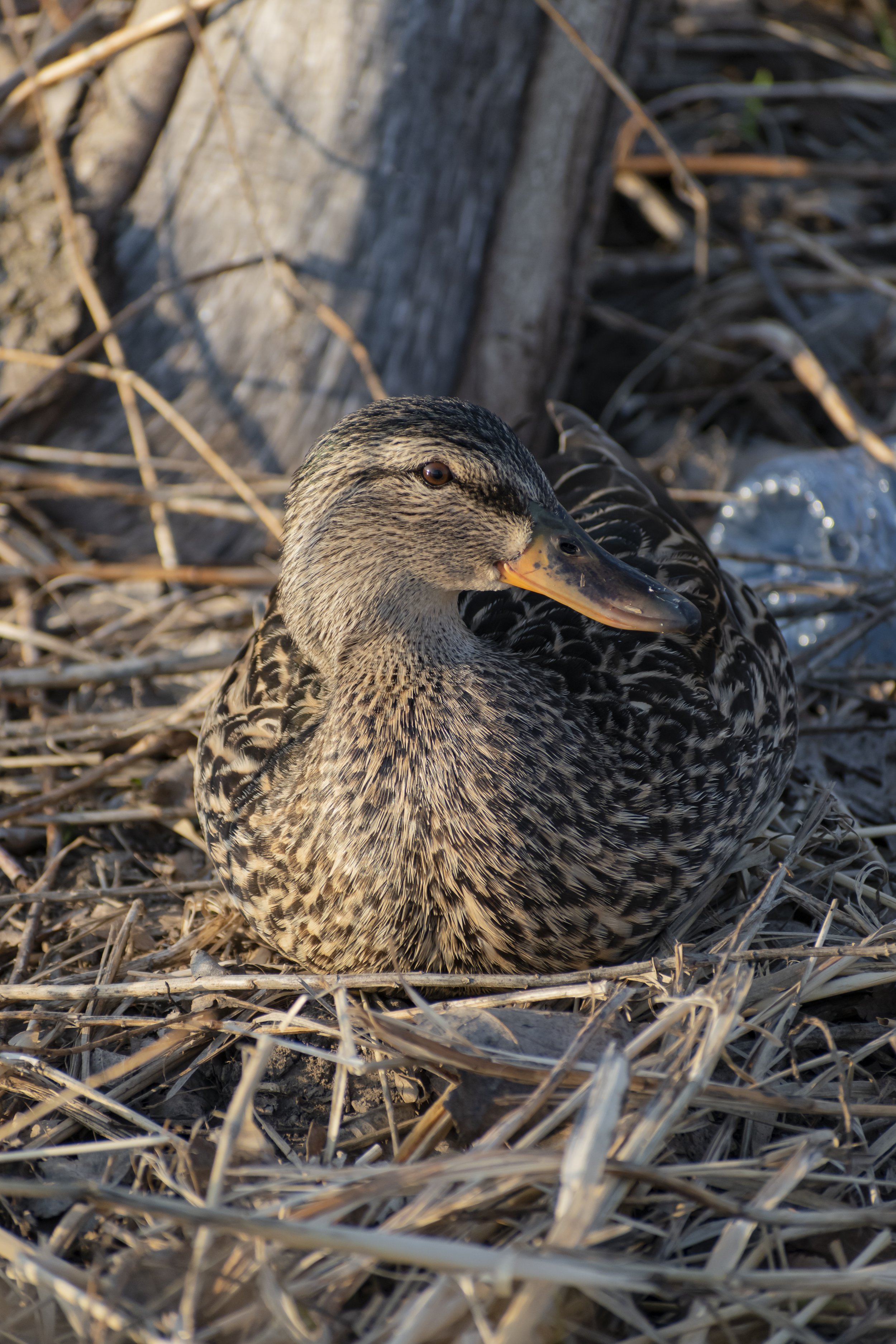Locy Hall, A Duck, and The Beauty of Letting Go
A mother duck (not Locy). Source: Wikimedia Commons
A college campus seemed like no place for a wild duck to lay eggs.
And yet, there she was, tucked into a corner outside Locy Hall, right across from the McCormick Foundation Center. A row of bikes and a steep hole next to her prevented me from getting too close, but I was still able to see her sitting, motionless, on what looked like a bunch of feathers and twigs. One step too close and she immediately ruffled her feathers at me, so I stepped back. Intrigued by this discovery, I walked back to my dorm, researching if there was anything I could do to help her: nothing, unfortunately. I was advised not to feed her or move her nest.
I affectionately named her Locy after where I found her. I told people about her, surprised that others didn’t notice. It was late April at that point, and the foliage around her nest was growing faster, forming a shield and slightly reassuring me that she’d be safe. Still, I sent texts to my friends reminding them to check on her if they were walking that way. She never left her spot on her eggs. I texted my dad, who spent far more time in nature than I did growing up, and asked what he knew about ducks.
One day, when I went to check up on her, I found that she had disappeared to go get some food. I was able to get a glimpse of what was in the nest — several large, white eggs. For something so simple, I had never seen anything more beautiful. Again, I did more research on how long it takes for duck eggs to hatch. According to my calculations, the eggs would surely hatch before I needed to leave for the summer. In my head, I envisioned being there for the hatching of the ducks and seeing some of them. Perhaps I’d see Locy and her line of little ducklings following her around campus. There was a sense of pride knowing that I would’ve been there since the start, that I would’ve known that this would happen.
When I showed her to a different friend, we realized she was surrounded by cigarette butts. Once I was aware, I couldn’t stop noticing how the number of them multiplied every day. I was indignant, frustrated at how someone could be so careless. In hindsight, I wonder if anything would have changed had I taken the time to clean the area around her with a friend, put up a sign or done something to protect her better.
The next time I went to see Locy, the nest was empty. No Locy, no eggs. I was beyond perplexed — had the eggs already hatched? Content with that conclusion, I turned around, hopeful that I’d see her and her ducklings return to the nest at some point. It was then, however, that I noticed what felt, at the time, like carnage.
Around the cigarette butts, feathers, and plants, were broken eggshells scattered feet away from the nest. I tried to convince myself, for a second, that perhaps this was proof they’d hatched, even though I felt in my stomach that that wasn’t the case. My gut intuition proved right when, upon further inspection, I noticed blood on the concrete. The embryos could not have been more than two weeks old, about a week from hatching.
My friend found me a few minutes later, staring in shock at the damage and crying as people passed around me, oblivious to the situation. She walked home with me, sympathizing over how devastating the situation was. I told my dad, whose only reassurance was that this was nature. This was the circle of life in action. I still don’t know exactly what happened — was it a human who did this? A predator? Weather conditions? In hindsight, no answer would give me solace. It didn’t seem fair.
It wasn’t my first time seeing an animal hurt, or even dead. Far from it. And yet, it was the time that impacted me the most. I won’t say Locy was a friend — she didn’t even let me get close to her. I never spoke to her or pet her like I’ve done with my dog back home. Perhaps that was what got me. The hopelessness of knowing there was nothing I could, or should, have done. It was a lesson in acceptance.
Acceptance doesn’t do anything to stop grief, though. The two coexisted. I accepted the rules and laws of nature while grieving the loss of Locy and her babies. I accepted my feelings. Not once did I feel ashamed to feel so deeply over the loss of a wild animal, even as I recognized how ridiculous it may have seemed to others. I accepted that things die, and there was nothing I could do about it, but it did not relieve me of my pain.
As dark as that sounds, and as cliche as this will sound, I wouldn’t change it for the world. Despite how negative grief and sadness can seem, I'm grateful. I’m grateful that something — the Universe, God, science, whomever, whatever — put such things on this earth and gave me the ability to bond with them, simply by observing them. Even if it leads to pain, I will continue to stop and smile as I watch the campus squirrels run around with food in their mouth. Or the baby bunnies that hop around during the spring quarter. If another duck decides to make its nest on campus, I do not doubt that I will love it as much as I did Locy. And if it again leads only to grief, I will know that I am lucky enough to love something so beautiful, and so worth loving and hurting for.

